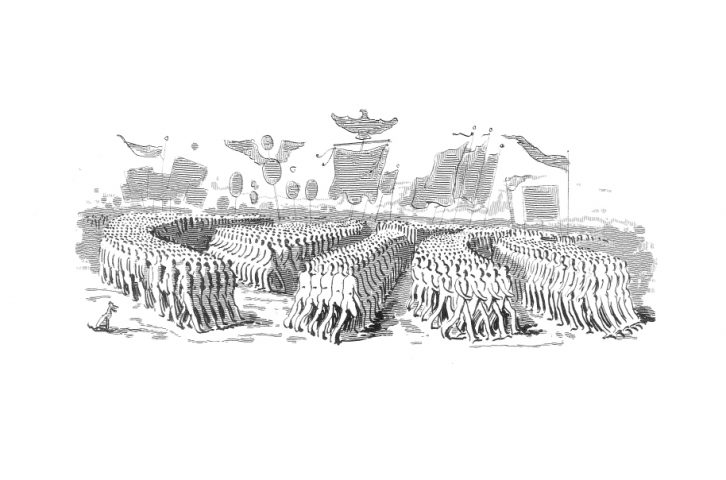Defending his nomination of Harriet Miers to the Supreme Court, President Bush said, “I know her well enough to be able to say that she shares my philosophy.” And what philosophy would that be?
Like most presidents, Bush has not thought a lot about his “judicial philosophy.” A judge should “strictly apply the Constitution and laws of the United States, and not legislate from the bench,” he explained, in words almost identical to those of the last four Republican presidents—who lived to regret many of their nominees to the Court. Introducing Miers to the nation, Bush devoted 16 words to her view of the judiciary, and 45 to her charity work.
A “judicial philosophy,” of course, is not necessarily the same thing as a constitutional philosophy, an appreciation of the Constitution and its principles. In his First Inaugural Address, Bush saluted the four C’s of “civility, courage, compassion, and character,” but he never mentioned the Constitution. This was ungrateful, considering that he had just won his office by virtue of the Electoral College, not to mention the Supreme Court’s timely aid in fighting Hurricane Chad. But the omission confirmed Bush’s resolute focus on compassion, and his willingness to overlook the constitutional case for limited government.
Contrast Bush’s First Inaugural with Ronald Reagan’s. “In this present crisis, government is not the solution to our problem; government is the problem…. It is time to check and reverse the growth of government, which shows signs of having grown beyond the consent of the governed,” Reagan declared. Though he made progress, the Gipper didn’t succeed as he had hoped; but at least he tried. The closest Bush came to an embrace of limited government was the tepid reminder: “Compassion is the work of a nation, not just a government.”
Compassionate conservatism is the President’s self-proclaimed philosophy. This term proves the old admonition that the adjective is the enemy of the noun. Conservatism defends “liberty and justice for all,” meaning that there are limits to what government can do to, and for, us. But a compassionate government cannot be a limited one. Its swelling sympathy will overwhelm the levees of individualism and consent (“I feel your pain,” whether you want me to or not); and its pity implies that for some unfortunate people, justice is not enough. This inherent indiscipline is why compassion used to be regarded as needing reason’s regulation, and why in any event it was thought better suited to private, not public, life. Compassionate conservatism, therefore, means big government conservatism. And big government conservatism is no conservatism at all.
Yet President Bush thinks of himself as a conservative, and there is something about him that fits the bill, intermittently. He has cut taxes, defended the nation against its enemies, and appointed good judges to the federal courts. More than that, he has championed bold policies like health savings accounts and Social Security reform. He’s willing to gamble on big ideas that aim at reformation, especially of individual character (the goal of the “ownership society”). He is not so comfortable with ideas in the sense of principles or theories, especially if these interfere with compassionate action. If people are hurting, he thinks government has to “move.”
* * *
The spectacular exception to his aversion to abstract theory is his foreign policy, which aims at global democracy based on the natural rights of man. Yet for Bush natural rights seem to be mainly for export, not for domestic consumption; they point to a government more limited than he prefers. No consideration of natural rights has ever prevented his administration from scratching one of its compassionate itches, whether affirmative action, the prescription drug benefit, or post-Katrina reconstruction.
What accounts for the president’s strange mixture of compassion and conservatism? Perhaps his education in the 1960s, when the Left was raging, soured him on any politics purporting to be based on philosophy or abstract principle, rather than on heartfelt care or effective compassion for another human being. Maybe his stance is congenital. His father, notoriously, valued character over “ideology.” More likely, George W. would trace his views to his born-again faith. We know from the 2000 primaries that his favorite political philosopher is Jesus Christ. Bush takes his faith seriously, and its emphases on the dominion of Spirit over Law (including constitutional law?) and on purity of heart colors his view of human excellence.
He’s looked into Harriet Miers’s heart, and he likes what he sees. But Christ’s kingdom is not of this world, and here below it’s reasonable to insist on more evidence. Political men and women need good character and high principles, preferably of the conservative sort. Miers’s compassion may be laudable, but it is not a philosophy.


